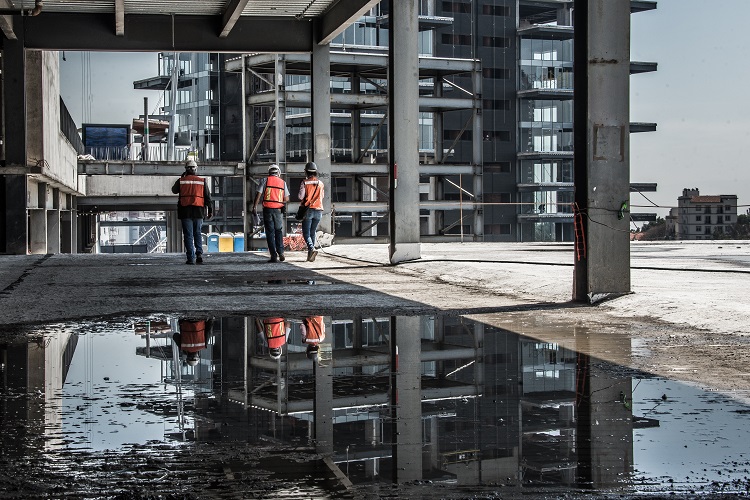It was 2 a.m., and my father and I had finally settled down for our flight from Shanghai to Beijing. Bleary-eyed, I was about to drift off to sleep, when I felt a tap on my shoulder. I hadn’t realized it, but there was a Chinese teenager more or less my age sitting right next to me. He asked me if I was American, and I told him I was, and from Houston. He then brought up the Rockets and excitedly asked, “Have you been to a real live NBA game before?”
He was over the moon when I answered in the affirmative.
This distant memory, so fond for me to remember, was immediately recalled when the blowback from Rockets GM Daryl Morey’s tweet emerged.
The media takeaway seems to be this: that the NBA has damaged itself and its international reputation by ending up on the Chinese government’s bad side.
But is my plane flight friend going to feel the same? Should we presume that he is pleased with the government’s suppression of his favorite teams, and the players he idolizes?
No. To think so would be silly.
For my friend, enraptured by an elite and enamoring basketball league undergirded by the freedoms of expression and opportunity that all American players have, my friend can taste the flavor of American freedom every time he watches the screen. And if he were watching now, he’d see the “Justice for Hong Kong” signs that are appearing in arenas all over the nation, championed by Chinese people living a better life here in the states than they ever had back on the mainland. For my friend, the team and the damage and the reputation hit has been borne by his own oppressive government. One fan, dissenting in the crowds of an NBA game with a sign that quoted GM Morey’s tweet said, “What’s the point of having a first amendment, right? We’re not saying that we’re trying to do anything other than show solidarity. We’re not trying to protest. We just want to show the NBA and show foreign governments that they can’t censor us.”
And so, on the other side of the Pacific blue that touches LA’s backyard, China doesn’t want to show their people the NBA. If the locals don’t see what they’re missing, then they won’t complain about the lackluster elements of their domestic lives. But people, like my friend on the flight, now know about at least one of the many Western things that Chinese people are missing. And the people of Hong Kong know about the Western Judicial system that they will lose if they give up their fight currently blazing in the streets.
The Chinese Government isn’t hurting the NBA by blacklisting the content its own companies like Tencent already paid for. It’s hurting its own credibility as a benefactor in the eyes of its own people. The American NBA may be losing a foreign market, but the Chinese people lose much more: a form of entertainment used to escape from a society that continues to commit terrible human rights abuses and atrocities in broad daylight, whether it is the horrific Uighur repression, or the social credit system being implemented in piecemeal form. Thus, the Chinese government loses most. Suddenly, millions of Chinese people, who have used entertainment to take away their attention from society’s ever-present oppression, are left undistracted. The buffer has disappeared. China’s veil of anaesthetizing pleasure found in American entertainment has been torn to pieces. There is no rubber on the tires that grind on painfully after China’s supposed “great leap forward.” The government’s public oppression of every young Chinese man hoping to be merely entertained treads directly upon the living rooms of the People’s Republic — and it will push them to means the government does not support or permit. “Even if there’s no official channel for live-streaming our team, we can still find many sources, listen to different commentators,” wrote a user on China’s Twitter-like service Weibo. The fan, who uses the name “Houston Rockets News,” added: “Isn’t it cool?” Thus, the internet that the Chinese turn to rather than the now-suppressed TV is teaching Chinese people how to circumvent their societal structure and rules. After all, “Do you really think those fans are going to be satisfied watching CBA games? There would be a social stability cost to banning the NBA in China.”
But there also is an economic cost to China’s restrictive actions. Economically, China is already playing a risky hand. They’ve taken a leaf out of Amazon’s playbook: just as Amazon willingly sacrifices short-term profitability for long-term market share (which is a key to long-term profitability), so China continues their heavy investment (between 1 to 8 Trillion (with a T!) dollars) in their ambitious and long-term Belt and Road Initiative (BRI). While those investment projections may be a generous promise: It is a promise that the world now expects China to keep. Yet, according to Wharton’s Marshall W. Meyer, this is not China being humanitarian: this Chinese investment in foreign infrastructure expects a return. If there is no return, well — the infrastructure essentially becomes a debt-for-equity swap benefitting China. However, China’s international focus could truthfully be more out of necessity than out of strength or dominance. For example, Chinese pigs are dying from a swine flu that China has not (or cannot) domestically address at the moment, which would mean that China may be reliant on foreign pork imports in the near future. It could be that China is investing in foreign projects and places for the sake of their domestic situation. China, in their risky promises abroad, may be trying to woo foreign friends as their domestic situation, whether it is the pigs, or Hong Kong, turns disastrous. Meyer in another statement claims that the only way China’s economic numbers are so robust is because the government is exorbitantly expanding available credit to people.
Combine that with US tariffs, and the financial situation in China doesn’t look too good. Thus, for them to spurn NBA coverage and NBA money may be another attempt to save face and to create a public illusion for the world to buy into that all is more placid in the mainland than it is in reality. The risky Amazon model that they’ve adopted has declared it does not need NBA money. But as mentioned before, who, other than China’s own government handing out credit like madmen, will sustain this?
In our land of the free and home of the brave, we have the American NBA worried about losing Chinese viewers and market share, yet the people in China are upset too. Their favorite form of distraction from the terrible political and systematic oppression is gone. And idleness is not just the devil’s playground, but the child’s too…and the People’s Republic of China could become much more precarious if its young men and women have the entertainment-free idleness to then think straight, to hear about Hong Kong, and to wonder if such tactics could work for them. Such as, pushing back against a regime that is now directly restricting the simple pleasures of every young man and woman in every Chinese home, against an ivory tower government bent on the common citizen’s mediocrity and stagnancy from the very start. Remember: the reason Hong Kong is bubbling over is largely because China tried to take away the Western attributes and benefits that people enjoyed there. Hundreds of millions of now-ex-NBA viewers in China could apply the pressure, pushing back against a government whose actions have literally left them in the darkness of a blank screen. And economically, China doesn’t really have any cards, other than talking a big game abroad, full of golden promises…
NBA Commissioner Adam Silver shouldn’t be worried. Give it all time. It’s a bluff.



